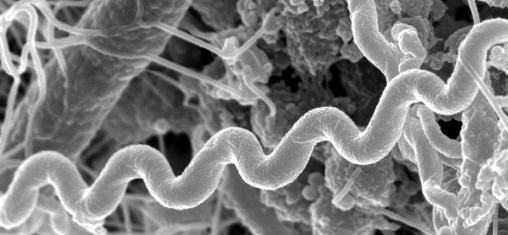We are a group of researchers interested in the microbiology of dental plaque and other disease-associated biofilms. The group forms part of the Translational Oral Biosciences research strand at Newcastle University. Our research is based in a multi-user laboratory in the School of Dental Sciences, and we collaborate widely with researchers at Newcastle, at other UK Universities and internationally. Nick Jakubovics is an established oral microbiologist with over 100 publications in the field. He is Editor-in-Chief of the Journal of Dental Research.

The major themes of our research are:
- The extracellular matrix of oral microbial biofilms. The matrix is a complex structure consisting of many different polymers. By identifying the key components of the matrix, we aim to find new ways to break it down and control biofilm formation.
- Intermicrobial interactions in oral biofilms. Microbial biofilms contain many different types of microbe that influence one another in many different ways. We aim to identify key interactions that support the development of biofilms or that restrict biofilm growth. Ultimately, the goal is to find new ways to modulate biofilms so they do not cause disease.
- The oral microbiome and metagenome during the transition from health to disease. We are interested in finding new biomarkers that identify individuals who are resilient against oral disease and those who are more prone to diseases such as dental caries (tooth decay) and periodontitis (gum disease). Identifying biomarkers that give early warning of the transition from health to disease is critical for the safety assessment during development of novel oral care agents.
- Infection control in dentistry. Since the onset of the COVID-19 pandemic, we have been trying to understand the risks of transmission of SARS-CoV-2 in the dental clinic. We have used fluorescent tracer dye and bacteriophage as surrogates for SARS-CoV-2 to measure the potential for dispersal during dental procedures and the impact of mitigation steps such as high volume extraction or physical barriers.
- Novel anti-biofilm prosthetic materials. Working with colleagues in the School of Engineering and clinicians in the Dental School and the Orthopaedics Department of the local NHS Trust, we aim to develop new materials that are resistant to colonisation and biofilm formation by microbes. We are using a variety of approaches, including physical surface modifications and coating surfaces with antimicrobial chemicals that undergo controlled release during the stages immediately after implantation of a medical device.
